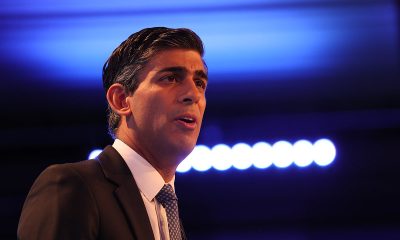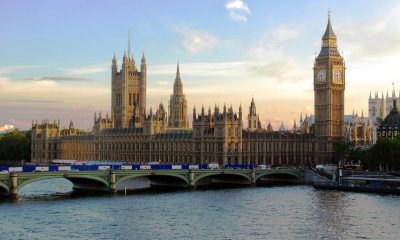American News
High court asked to iron out polling place clothing dispute
WASHINGTON — A “Make America Great Again” hat. A tea party T-shirt. A MoveOn.org button.
Wear any one of those items to vote in Minnesota, and a poll worker will likely ask you to remove it or cover it up.
Like a number of states, Minnesota bars voters from wearing political items to the polls to reduce the potential for confrontations or voter intimidation. But that could change. The Supreme Court on Feb. 28 will consider a challenge to the state’s law, in a case that could affect other states, too.
Wen Fa, a lawyer with the Pacific Legal Foundation, the group behind the challenge to Minnesota’s law, says voters wearing political apparel shouldn’t have to hang up their hats, turn their T-shirts inside out or put their buttons in their bags just to cast a ballot.
Wearing political clothing is “a passive way to express core political values,” said Fa, who said the case is “about the free speech rights of all Americans.”
Minnesota sees it differently. In court papers, it says the law is a “reasonable restriction” that preserves “order and decorum in the polling place” and prevents “voter confusion and intimidation.”
“I think what’s important to understand is the purpose of this prohibition is to protect the fundamental right to vote,” said Daniel Rogan, who is arguing the case for the state and said he doesn’t know of anyone issued a fine of up to $300 allowed under the law. Lower courts have sided with the state.
Beyond Minnesota, state laws vary in their fashion policing of the polls.
Some states allow voters to wear whatever they want. Others bar campaign clothing directly related to candidates or issues on the ballot. Minnesota has a broad law that also bans “political” attire, including clothing promoting a group with understood political views, such as the tea party or MoveOn.org.
The sides in the Supreme Court case disagree about which states have laws similar to Minnesota’s, but each side’s number is roughly 10.
Elections officials in states with restrictions say it’s not a big issue. Most people who wear prohibited items to the polls just aren’t aware of the law or forget, officials say, and comply with requests to cover up.
Will Senning, Vermont’s elections director since 2013, said he can’t remember any Election Day calls about people refusing to comply with his state’s law. Elaine Manlove, who has headed elections in Delaware since 2007, couldn’t think of a single prosecution under her state’s statute nor could Mark Goins, who has overseen Tennessee elections since 2009.
But Goins said he’d be concerned about allowing clothing supporting candidates or political parties at polling places.
“I think you run the risk of having political disputes inside the polling location and sometimes these disputes can get pretty loud,” Goins said.
The Supreme Court last considered the issue of free speech at polling places in 1992 when the court upheld a Tennessee law prohibiting the display or distribution of campaign materials within 100 feet of a polling place.
The case now before the justices began in 2010 when several groups sued after Minnesota officials made clear they wouldn’t permit residents to vote while wearing tea party apparel or buttons that said, “Please I.D. Me.” The buttons referred to legislation then under discussion in the state and ultimately defeated that would have required residents to show photo identification to vote.
Two voters who defied elections officials — one who wore a “Please I.D. Me” button and another who wore both a button and tea party T-shirt — were asked to cover up or remove the items. Both were ultimately allowed to vote wearing the apparel, though their names were taken down for potential prosecution. Andy Cilek, one of the voters confronted by poll workers, called the policy “absurd.”
Now, at the Supreme Court, Cilek’s side has both the support of the libertarian Cato Institute and the liberal American Civil Liberties Union, and his lawyer believes the case is not one that will divide the court along ideological lines.
“The American electorate is surely hardy enough to vote their conscience even if they notice their fellow citizens wearing, say, a Black Lives Matter or AFL-CIO T-shirt, a Women’s March hat, or a pro-life or peace-sign button,” the ACLU told the court in a brief.
Texas resident Brett Mauthe agrees. In 2016, the Donald Trump supporter was arrested outside his polling place after he refused to cover up a black T-shirt he was wearing that said “50% basket of deplorables,” a reference to a comment Hillary Clinton had made about Trump supporters. He argued his shirt was ambiguous in its support.
Mauthe, who didn’t know about Texas’ law when he went to vote and whose case was ultimately dismissed, says he’s moved on. He’s passionate about his politics, he said, but if given the opportunity to lawfully wear political clothing to the polls, “I probably would just wear regular street clothes,” he said.






















